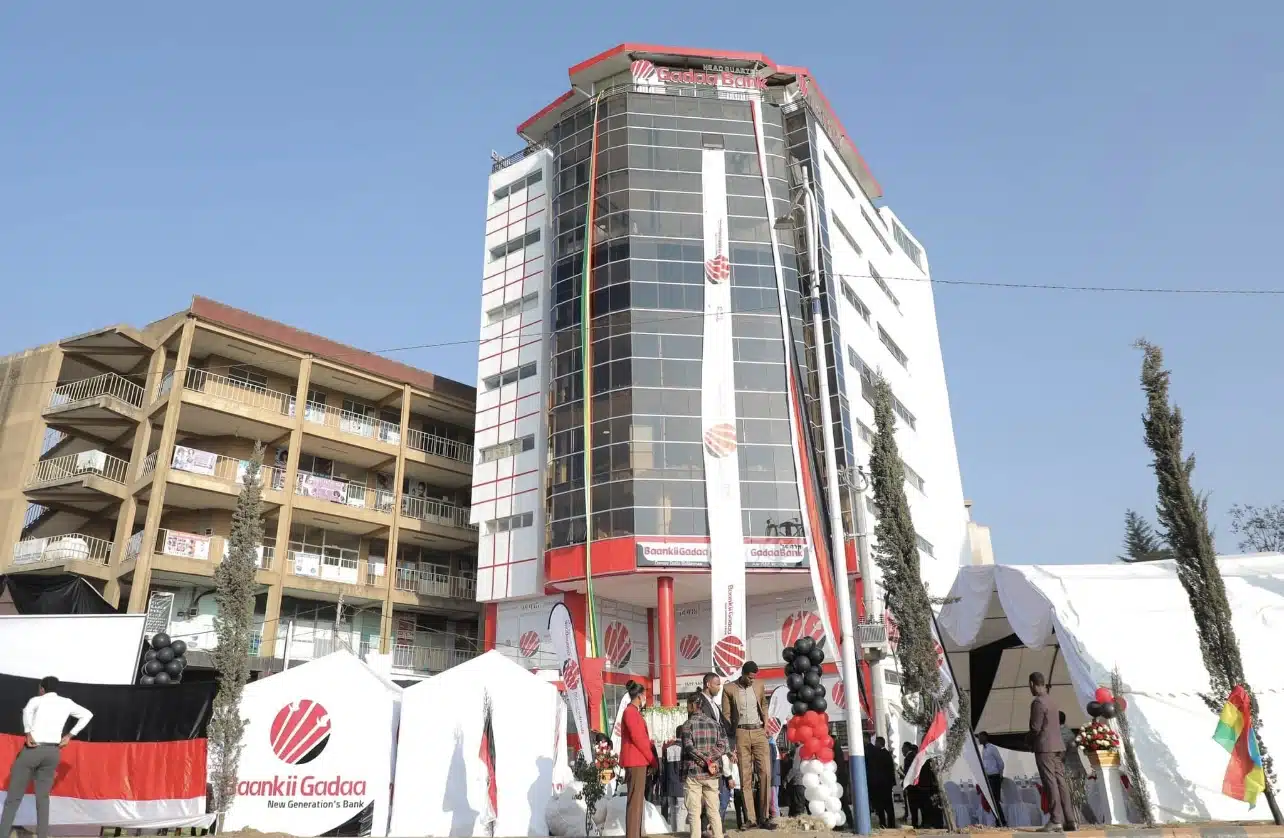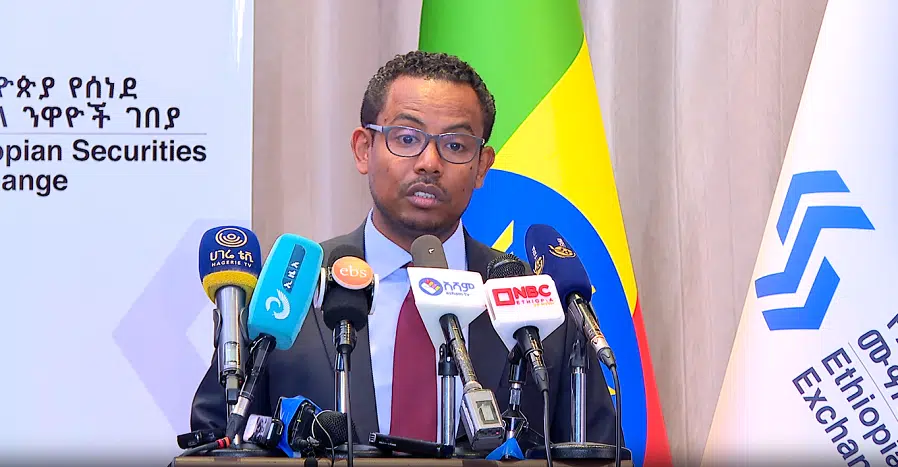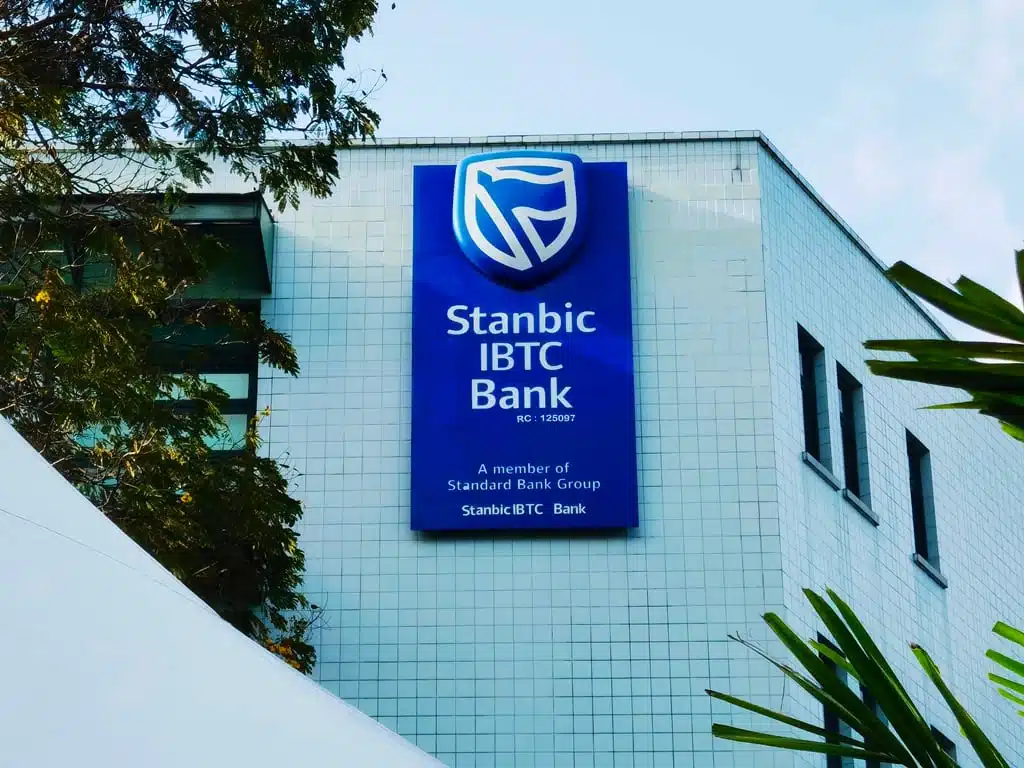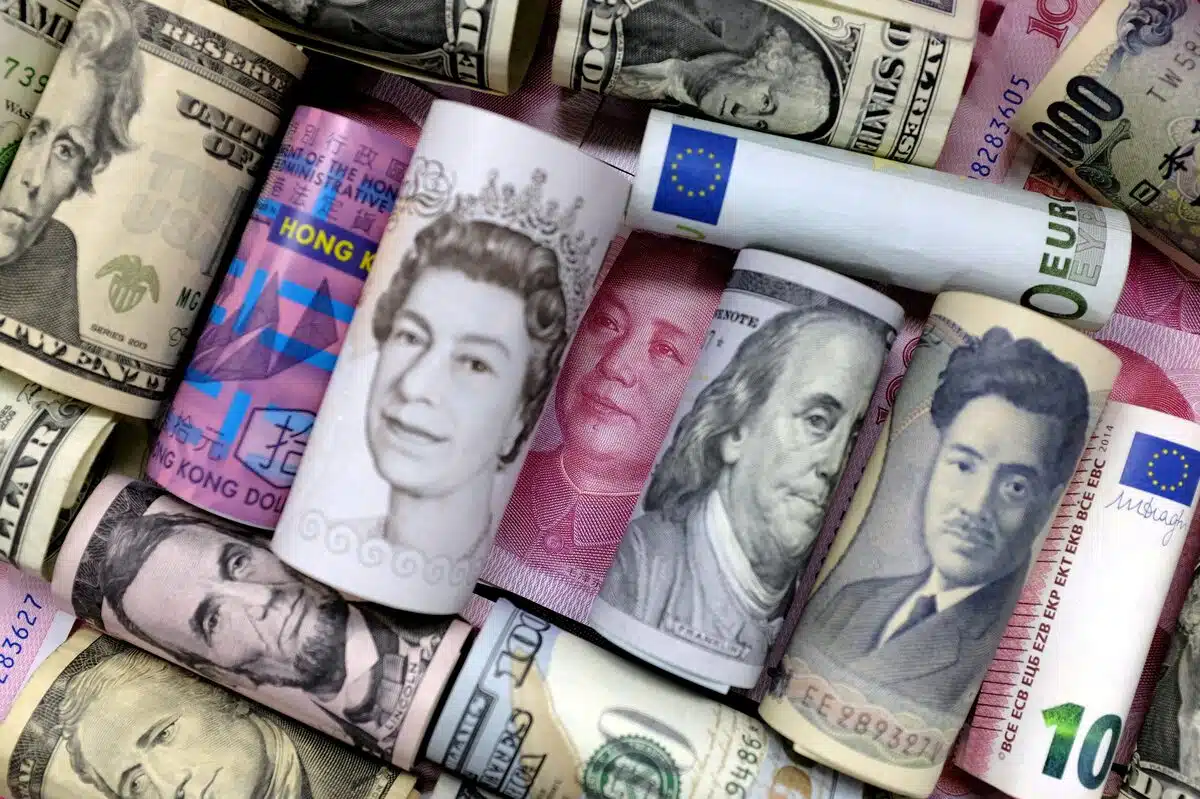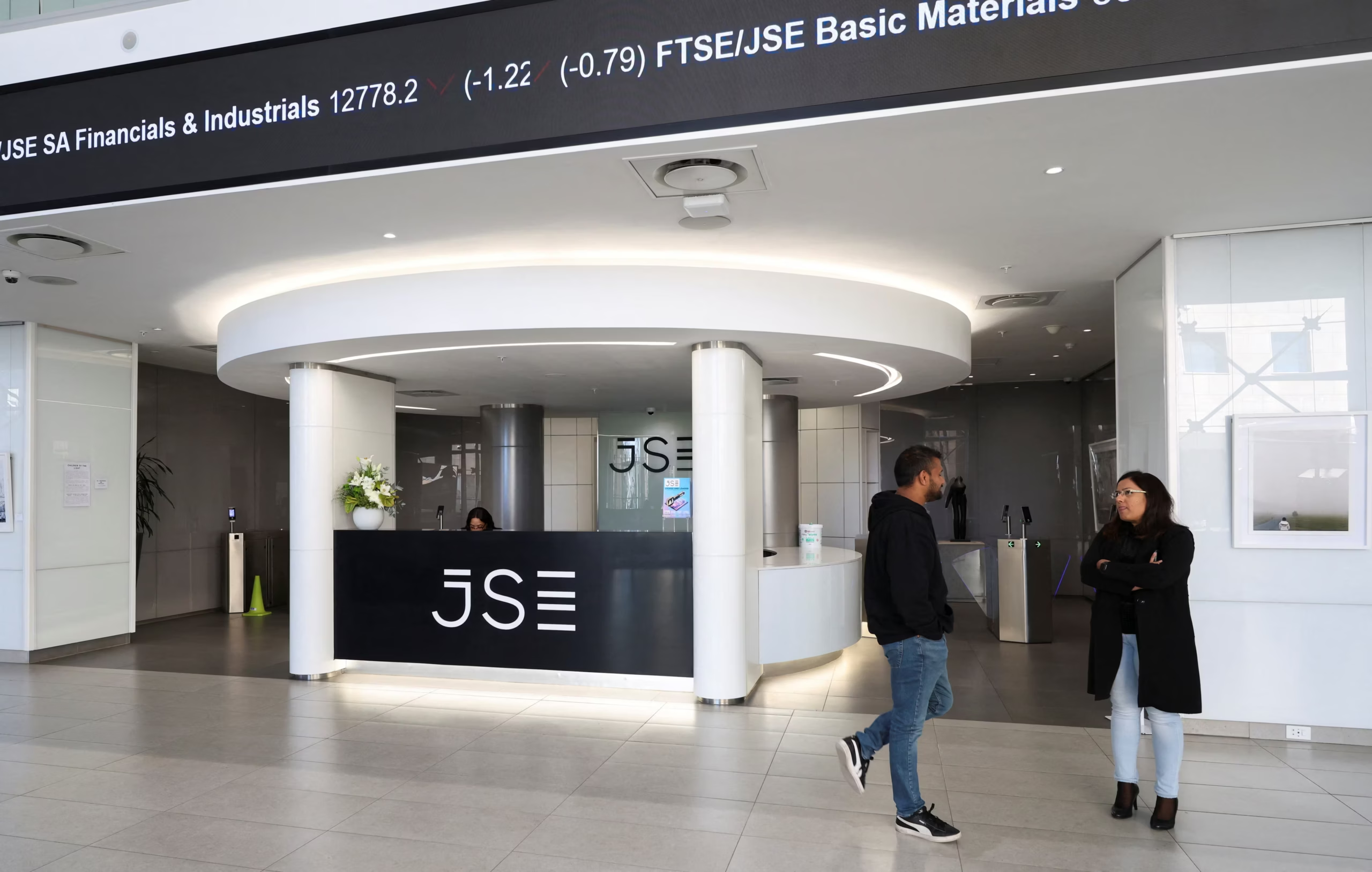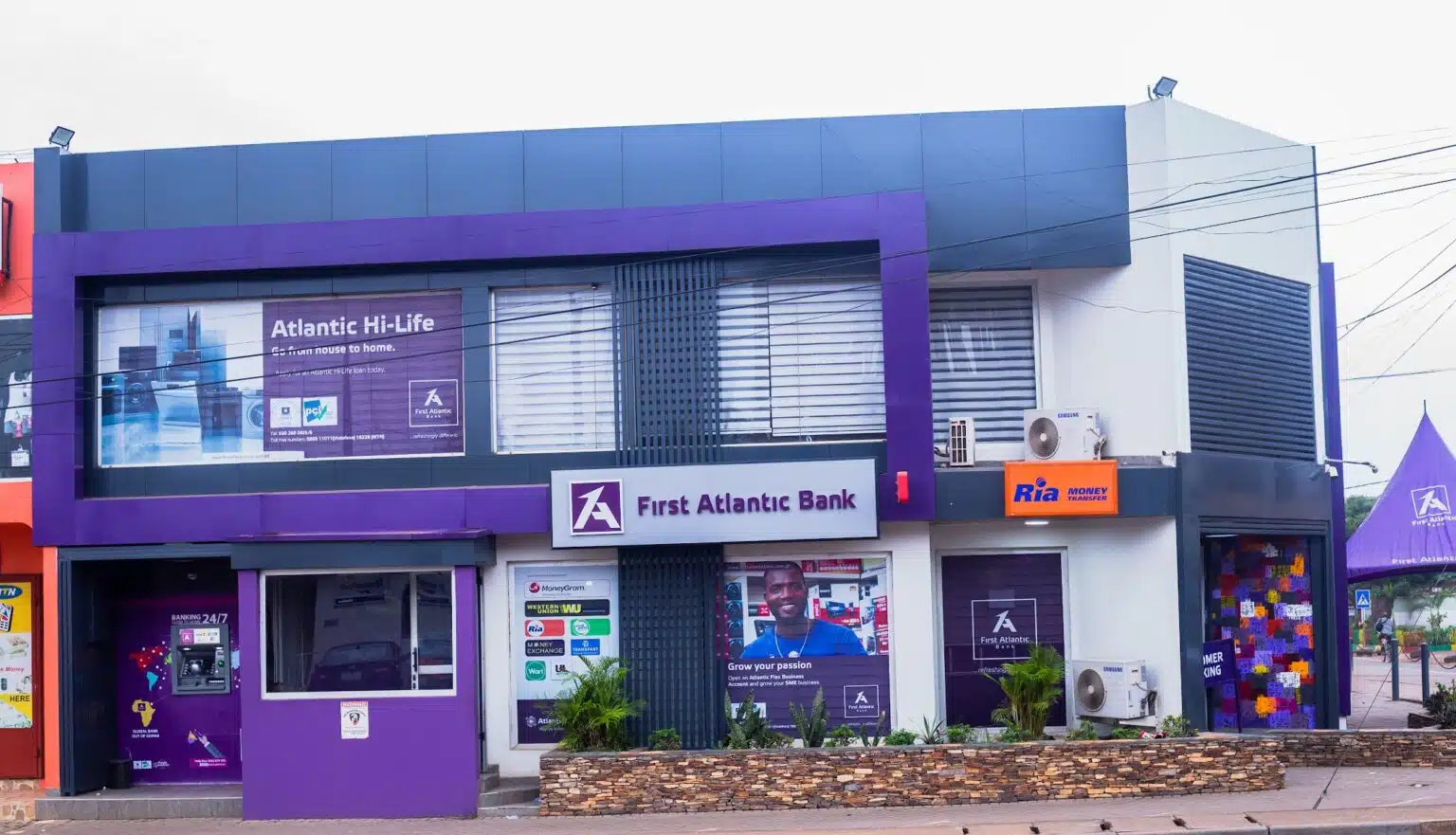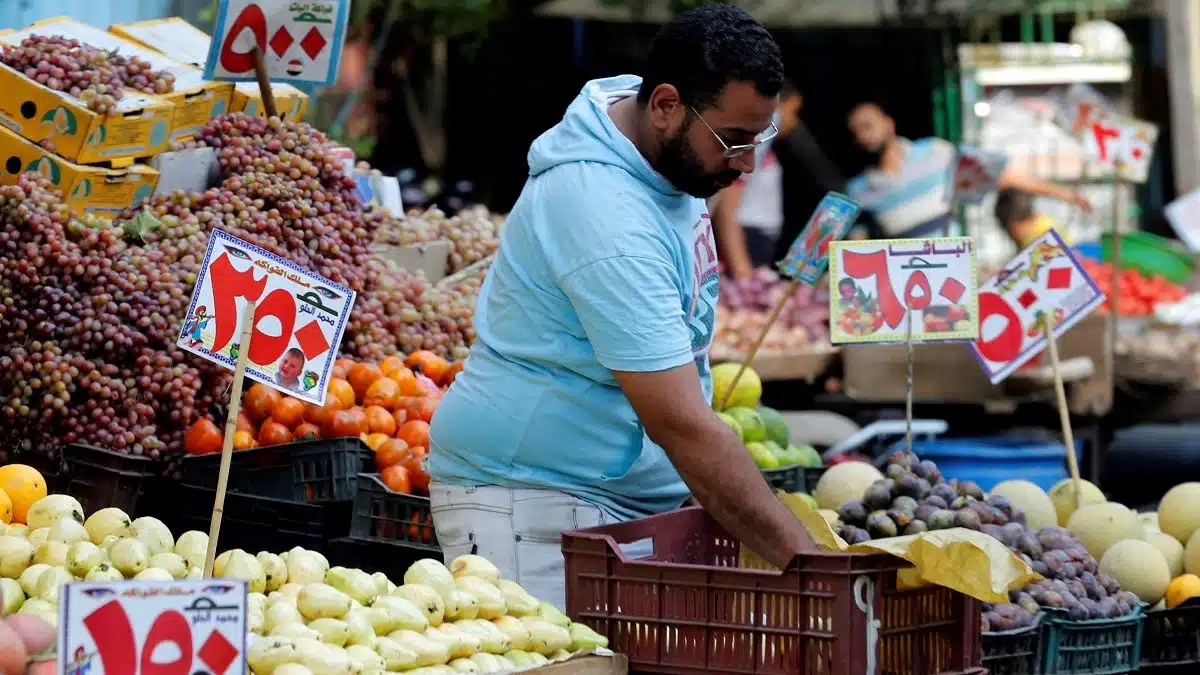Ethiopia’s new stock exchange has recorded its second major milestone with the listing of Gadaa Bank — a fast-growing commercial lender, reinforcing government efforts to open up the financial system and expand sources of private capital.
The bank’s 1,232,728 ordinary shares—already held by existing shareholders—began trading on the Ethiopian Securities Exchange (ESX) this week after receiving regulatory approval from the Ethiopian Capital Market Authority (ECMA) on June 17.
Gadaa follows Wegagen Bank, which became the first to list on the ESX in May.
“Gadaa Bank’s listing demonstrates the growing confidence in our Exchange and the value of public markets in driving inclusive economic growth,” said Tilahun Kassahun, Chief Executive Officer of the ESX. “We look forward to supporting more institutions in accessing capital, deepening market participation, and building long-term value for the Ethiopian people.”
The ESX was launched in July 2024 as part of Prime Minister Abiy Ahmed’s economic liberalisation agenda.
The exchange aims to reduce Ethiopia’s reliance on central bank financing and state-led credit by encouraging market-based funding mechanisms.
So far, however, activity has been modest, with few issuers and thin trading volumes.
Regulators have said the early focus is on building credibility through compliance and disclosure.
Gadaa Bank, founded in 2021 and operational since 2022, joins the exchange with a relatively short operating history but notable financial momentum.
The lender reported a net profit of $912,698 in the 2023/24 fiscal year, up from $539,683 a year earlier.
During the same period, the bank’s total assets rose to over $48.4 million, driven by growth in deposits and risk-weighted lending.
At a listing ceremony held in Addis Ababa, Gadaa Bank CEO Wolde Bulto described the debut as a strategic inflection point. “This will create liquidity for our shareholders and unlock new avenues for capital formation,” he said. “It allows us to expand our reach and deliver innovative financial services to our growing customer base.”
Board chair Hassen Hussien echoed this view, noting the governance implications of being publicly traded. “Being listed on the Ethiopian Securities Exchange reaffirms our dedication to transparency, growth, and public participation,” he said. “We believe this will enhance our financial capacity, improve corporate governance, and strengthen our credibility in the market.”
The listing also holds symbolic weight for policymakers seeking to diversify the country’s narrow financial landscape.
For decades, Ethiopia’s economy has operated without a formal capital market, relying heavily on bank lending as the dominant source of business financing.
The absence of a corporate bond market and minimal private equity activity has left businesses with few alternatives to access long-term capital.
While Gadaa’s entry is unlikely to transform market liquidity in the near term, it offers a signal to other institutions weighing entry.
The government is expected to push more public enterprises to list on the ESX in the coming years, though most are still undergoing internal reforms and legal restructuring in preparation.
With the exchange still in its infancy, each new listing plays a critical role in testing the market’s infrastructure and building investor confidence—steps that Ethiopia’s economic reform agenda increasingly depends on.
Exchange rate as of December 2024 was 126.1 birr per U.S dollar

